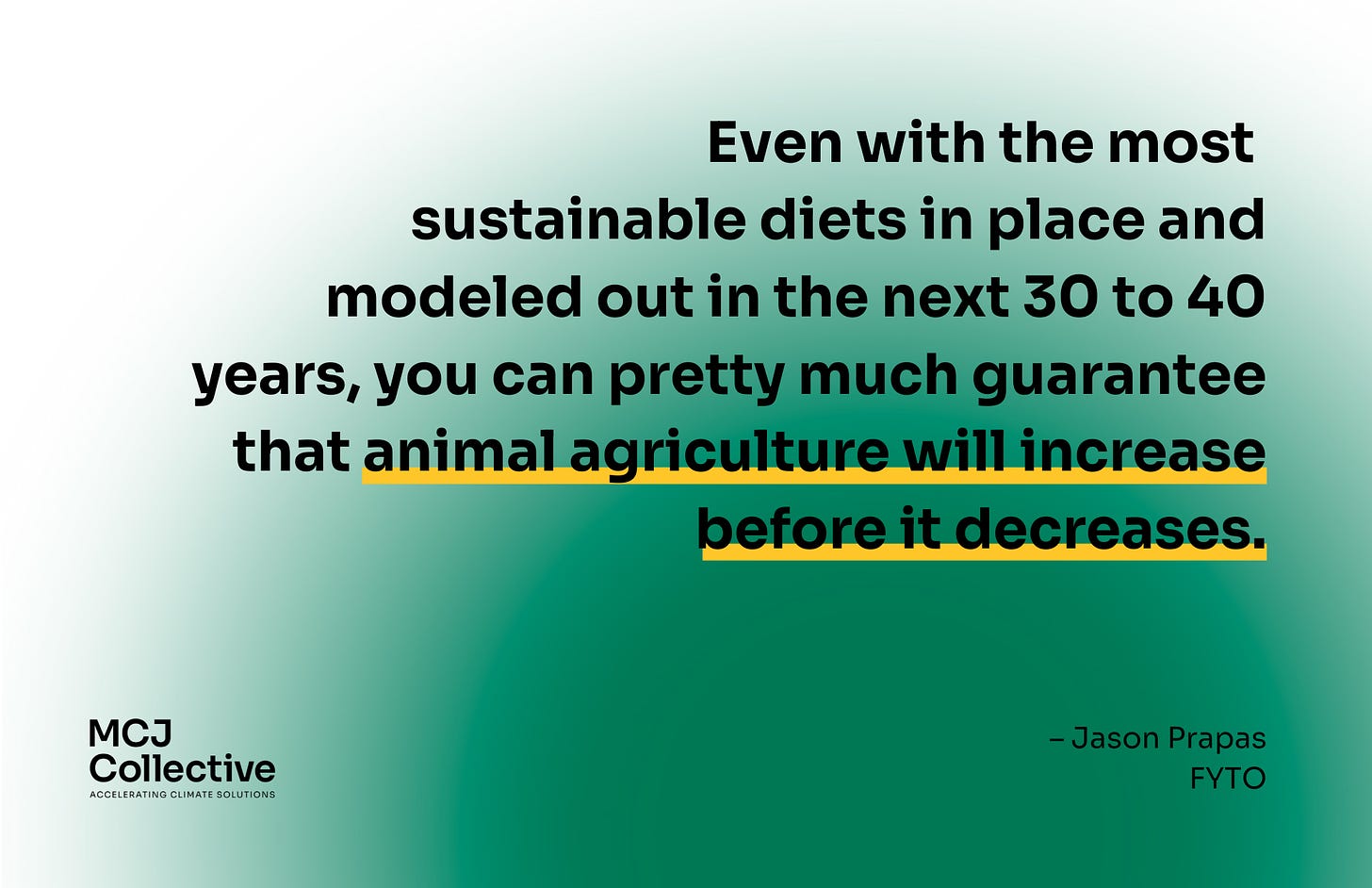Today's guest is Jason Prapas, CEO and Founder of FYTO, which is a technology company that is unlocking the potential of nutrient-rich aquatic plants to reduce the emissions and water footprint of food production, starting with cattle cultivation.
Raising livestock, particularly cattle, is known for its incredibly high emissions footprint. And while we can make responsible diet choices individually, relying on society to change as a whole is challenging in a world that’s increasingly adopting meat-oriented food products. If opting for plant-based alternatives requires consumer choice and sacrifice, what are the systems-level approaches we can take to solve cattle’s carbon footprint?
Each of humanity's major cultivated crops is a platform of sorts. Wheat, corn, soybeans, rice, etc. all have micro-economies surrounding them, including specific tools and machinery, input requirements, supply chains, markets, and geographies. FYTO is creating an entirely new agricultural crop platform that uses automation and sensor technology to achieve protein-rich aquatic plant mass at scale. It's a huge bet, with a huge reward for the planet if it pays off.
Cody and Jason have a great conversation about the negative feedback loops built into the emissions and water impact of cattle production today, plus what it will take to grow a closed-loop system that can halt and reverse these externalities.
In this episode, we cover:
[4:12] Problems with food and water security coupled with rapid carbon reductions
[6:04] Expected growth of food production and the climate impact
[8:15] The role of animal agriculture
[11:06] How climate justice fits in
[12:59] Downstream impacts of a cow's diet, including emissions and deforestation
[20:47] Groundwater pollution from animal food production
[25:21] Methane emissions from cattle and different approaches aimed at reducing them
[30:04] FYTO's farm solution
[34:31] Role of technology development in farming better crops at scale
[36:01] The FYTO farm setup
[39:39] Protein comparisons between FYTO's plants and other types of cattle feed
[40:39] Role of recycled animal waste as fertilizer
[41:27] FYTO's current trials for measuring methane impact
[42:51] The company's business model
[48:07] Understanding impacts on scope three emissions
[50:01] FYTO's shelf-life and storage
[53:59] The company's funding to date and plans for growth
Visit our website for a full transcript of this episode.
Get connected:
Cody Simms
MCJ Podcast / Collective
*You can also reach us via email at info@mcjcollective.com, where we encourage you to share your feedback on episodes and suggestions for future topics or guests.
Episode recorded on October 5, 2022.














Reducing cattle's carbon footprint with nutrient-rich aquatic plants